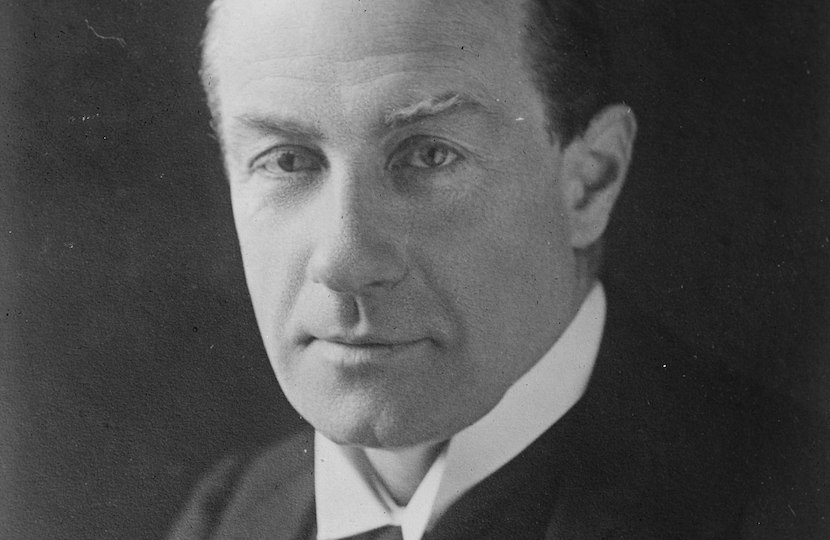
On 4 December 1924, words that were to become very well-known —one nation—were heard for the first time. They came at the end of a great speech by Stanley Baldwin. He was the originator of the phrase, not Disraeli. And Baldwin’s policies gave substance to one-nation Conservatism—as Alistair Lexden explained in an article published on the ConservativeHome website on 4 December 2024.
People will keep on referring to Disraeli’s one-nation Conservatism. A new Tory peer, thought to be quite well-versed in history, made much of it in his maiden speech in July. In the same debate another Tory peer called for policies “within the frame of Disraeli’s one nation.”
Disraeli would have been astonished. He never uttered a word about one-nation Conservatism.
Why is it attributed to him? His novel, Sybil, which he published in 1845, is responsible. At one point, in a frequently quoted passage, its hero declares that there are in England “ two nations between whom there is no intercourse and no sympathy: the rich and the poor.”
After Disraeli’s death in 1881, the words were made famous by his many admirers, who said they showed that he deplored social divsions and had been determined to heal them .
But not once during his lifetime did he say that the two nations should be brought together in everlasting unity and peace. Members of the second nation did, however, deserve greater comfort. In 1872 in one of his few speeches outside Parliament, he declared, in a well-remembered phrase, that efforts should be made “to elevate the condition of the people.”
He did a little elevating himself. He passed some half-dozen pieces of low-key legislation to help the second of the two nations. The most important reforms gave trade unions rights to picket that Mrs Thatcher would revoke a century later.
The Artisans’ Dwellings Act of 1875 is often recalled. It gave local authorities powers to build houses, but few were actually built because that would have meant putting up the rates paid by the first nation. Disraeli was not much interested, snoozing gently while these measures were being discussed in cabinet.
After 1875, the second year of his only Government with a majority, he strongly discouraged Sir Richard Cross, his middle-class Home Secretary with a big conscience, from bringing forward any more measures of social reform.
His priorities lay elsewhere. He won great diplomatic victories in Europe in the 1870s, and made the Conservatives the party of Empire.
The second nation was wholly unwelcome in the corridors of power. As one of his closest confidants put it, “he had no notion of allowing political power to be divorced from the principle of birth and property.” Disraeli himself assured his predecessor, Lord Derby, that he would always work “to uphold the aristocratic settlement of this country.”
One-nation Conservatism was created not by Disraeli in the Victorian age, but by Stanley Baldwin in the 20th century. The famous phrase was first heard exactly a century ago in the aftermath of the greatest election victory the Tories have ever won on their own without coalition allies.
Assisted by the Zinoviev Letter (about which I have written recently), the October 1924 election swept them back to power after a brief period of opposition with a majority of 223.
New MPs and the Party faithful packed the Royal Albert Hall on 4 December 1924 (something way beyond the dreams of the Party today).
Baldwin spoke not of the importance of national prestige and glory as Disraeli liked to do, but of the duty and service which his Party—then known as the Unionist Party—owed to “our fellow countrymen who trusted us and have given us their confIdence, and who believe in their hearts that we have come to London to do what we can to right those things that are hard and difficult for them.”
He warmed to this great theme, offering a new vision for Tory politics. “I want to see the spirit of service to the whole nation the birthright of every member of the Unionist Party—Unionist in the sense that we stand for the union of those two nations of which Disraeli spoke two generations ago: union among our own people to make one nation of our own people at home which, if secured, nothing else matters in the world.”
In government he mobilised the resources of the nation to extend the welfare state which Lloyd George and Churchill had begun. 21 major Bills, covering health, pensions, housing, social insurance, unemployment and education were passed, and a new system of local government was created to deliver services more effectively to the people.
All these measures bore the imprint of Neville Chamberlain, the greatest social reformer the Tory Party has ever had. One-nation Conservatism had arrived.
Why has it all been forgotten? Baldwin retired in 1937, feted by the entire country. Churchill, the man whose career he had rescued in 1924, destroyed his reputation, as is well-known, through claims about Baldwin’s failure to rearm in the face of Hitler’s threats.
The claims were false, as Professor Philip Williamson has showed in his brilliant, detailed analysis of Baldwin’s political career in all its aspects. He has brought Baldwin out of the shadows, where his reputation languished for far too long.
It is time the Conservative Party acknowledged its great debt to the real founder of one-nation Conservatism.
FURTHER READING—Alistair Lexden, “The Greatness of Stanley Baldwin” (September 2023,). Richard Shannon, The Age of Disraeli 1868-1881: The Rise of Tory Democracy (Longman, 1992). Philip Williamson, Stanley Baldwin: Conservative Leadership and National Values (Cambridge University Press,1999).

